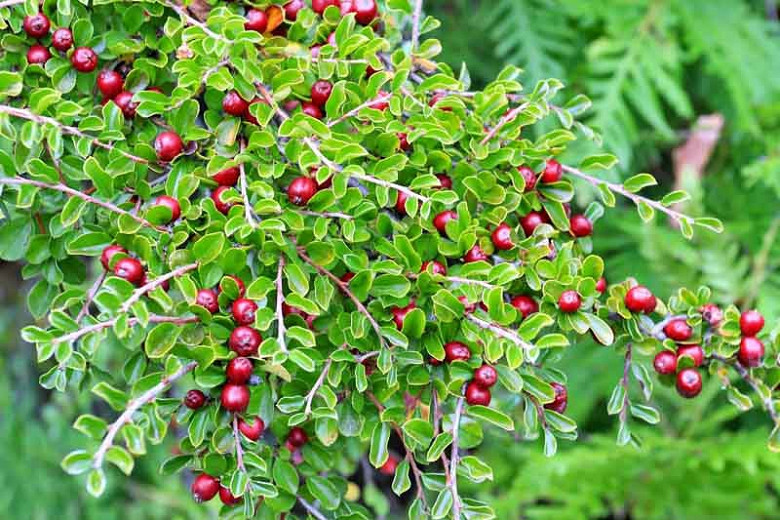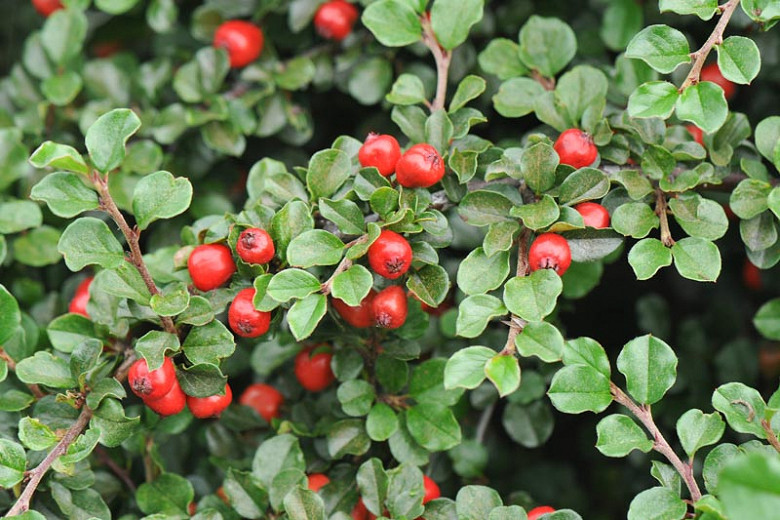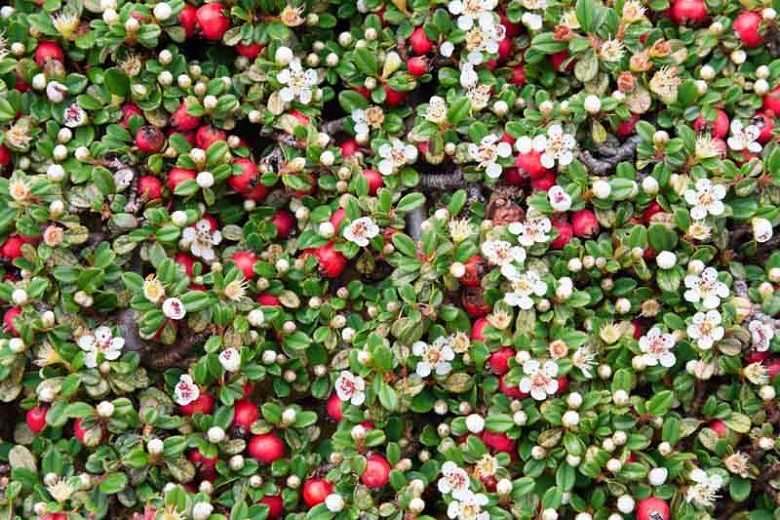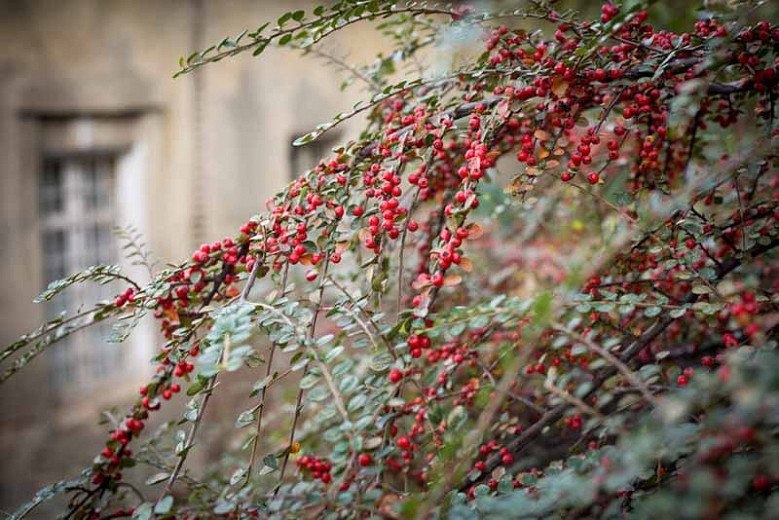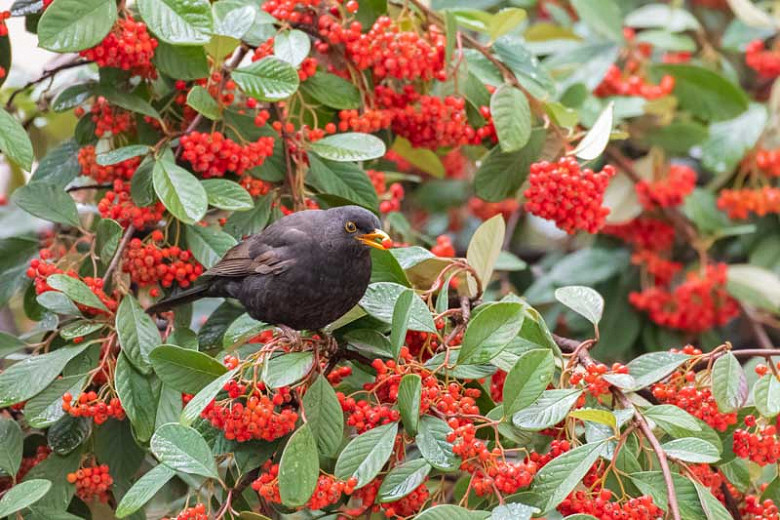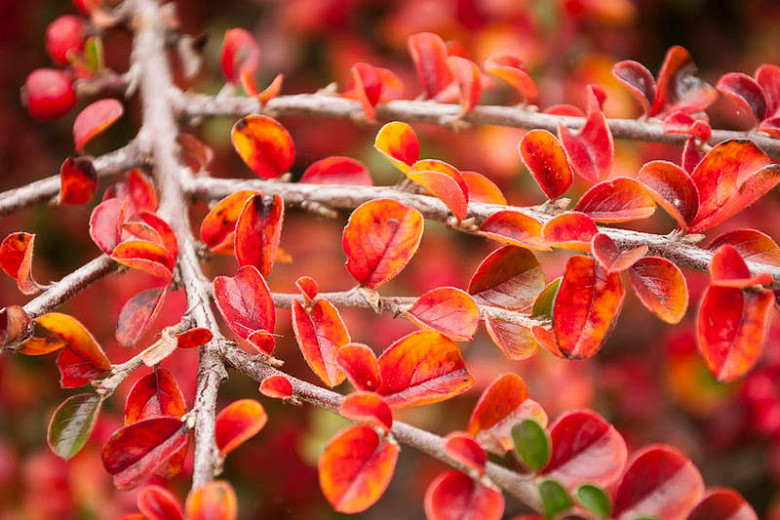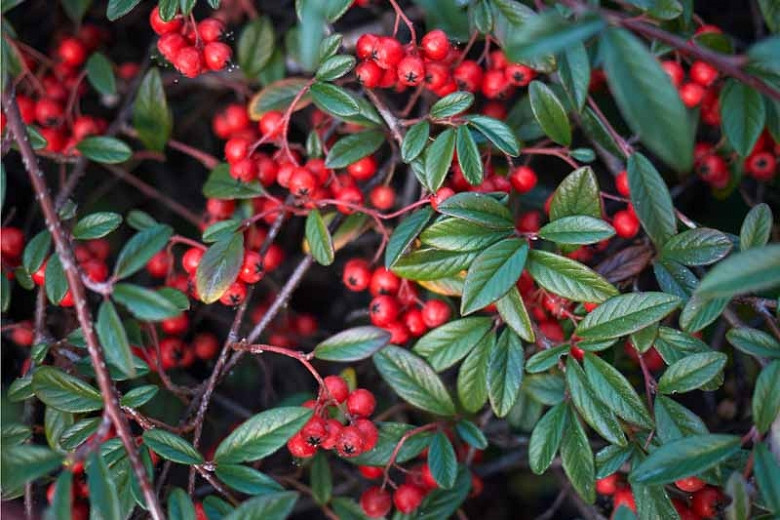Cotoneaster adpressus (Creeping Cotoneaster)
Noted for its handsome foliage and large, lustrous red fruit, Cotoneaster adpressus (Creeping Cotoneaster) is a dense, prostrate, deciduous shrub with stiff branches studded with small, rounded, wavy-edge, dark green leaves. The foliage turns reddish purple in fall. Small, 5-petaled, white flowers tinged with pink are produced in late spring. They are followed by brilliant berries which ripen to bright red in late summer to fall, and persist into winter.
Noted for its handsome foliage and large, lustrous red fruit, Cotoneaster adpressus (Creeping Cotoneaster) is a dense, prostrate, deciduous shrub with stiff branches studded with small, rounded, wavy-edge, dark green leaves. The foliage turns reddish purple in fall. Small, 5-petaled, white flowers tinged with pink are produced in late spring. They are followed by brilliant berries which ripen to bright red in late summer to fall, and persist into winter. Easy to grow, Creeping Cotoneaster makes a very attractive ground cover and looks lovely when draped over the edge of walls or large rocks.
- Grows up in a bushy, densely-branched shrub up to 6-12 in. tall (15-30 cm) and 4-6 ft. wide (120-180 cm). The prostate stems spread out horizontally over the ground and can root where they come in contact with the soil.
- A full sun to partial shade lover, this plant is easily grown in dry to medium moisture, well-drained soils. Drought tolerant once established.
- Excellent ground cover. Perfect for banks and slopes (erosion control), rock gardens or cascading over walls.
- Prune to shape as needed.
- Propagate by seed sown as soon as ripe in autumn in containers in a cold frame or by softwood cuttings in early summer.
- Native to China.
- Fruit may cause mild stomach upset if ingested
Requirements
| Hardiness | 4 – 8 |
|---|---|
| Heat Zones | 1 – 7 |
| Plant Type | Shrubs |
| Plant Family | Cotoneaster |
| Exposure | Full Sun, Partial Sun |
| Season of Interest | Spring (Early,Mid,Late)Summer (Early,Mid,Late)FallWinter |
| Height | 6" – 1' (15cm – 30cm) |
| Spread | 4' – 6' (120cm – 180cm) |
| Spacing | 48″ – 72″ (120cm – 180cm) |
| Water Needs | Low, Average |
| Maintenance | Low |
| Soil Type | Chalk, Clay, Loam, Sand |
| Soil pH | Acid, Alkaline, Neutral |
| Soil Drainage | Well-Drained |
| Characteristics | Fruit & Berries |
| Tolerance | Drought, Rabbit |
| Garden Uses | Banks and Slopes, Beds and Borders, Ground Covers |
| Garden Styles | Gravel and Rock Garden, Informal and Cottage |
